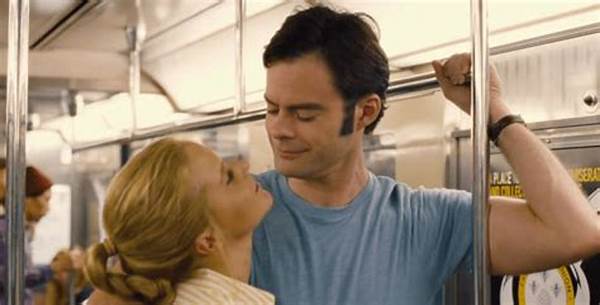Hey there, TV lovers! If you’re anything like me, you know the bittersweet feeling that comes with watching the final episode of a beloved series. It’s like saying goodbye to a friend you’ve grown with over countless hours. One key reason these finales hit so hard is the emotional growth in television endings. There’s just something about wrapping up years’ worth of character development and story arcs that leaves you with a sense of nostalgia and satisfaction—whether you’re shedding tears of joy, sorrow, or both.
Read Now : Female Protagonist Success Stories
The Impact of Emotional Growth in TV Show Conclusions
Ever found yourself thinking about a show’s ending long after you’ve turned off the screen? That’s the magic of emotional growth in television endings. As viewers, we invest emotionally in characters and their journeys. These well-crafted conclusions allow us to witness characters reaching their personal milestones, making triumphant resolutions, or even coming to terms with bittersweet realities. It’s not just about tying loose ends; it’s an emotional roller coaster that reflects life itself.
These endings often mirror the ups and downs of our real lives. Whether characters achieve personal growth or confront lingering challenges, these finales often showcase a slice of human experience. This resonance is what makes the characters, who are fictional, feel so relatable and real. We may not be battling dragons or solving mythical mysteries, but we empathize with the characters’ emotional journeys, making the farewells that much harder.
What sets apart those standout series finales is their ability to inspire reflection. How do these character transformations resonate with our lives? The emotional growth in television endings prompts us to look inward, consider our own life paths, and perhaps push us to grow from our experiences, just as our beloved characters have done on screen.
Recognizing Patterns in Emotional Growth in Finales
1. Character Resolution: A well-executed finale will often tie up major character arcs, where protagonists have tangible moments of growth.
2. Emotional Catharsis: These endings provide a sense of emotional release for viewers, often eliciting tears and laughter alike.
3. Life Lessons: Look for the morality or wisdom that characters gain as part of their journey, reflecting real-life learning.
4. Connections and Closure: Show endings often stress relationships—either newly formed or reconciling past grievances.
5. Symbolic Parallels: These symbolic gestures emphasize change and growth, making the emotional growth in television endings more poignant.
How Emotional Growth Shapes Our Viewing Experience
Dive into a TV series, and it’s not just plot twists and cliffhangers that keep us addicted. The emotional growth in television endings is a biggie in what captures our hearts. The deep-seated investment we place on these arcs often keeps us rooting for characters through seasons, eagerly anticipating how their journeys will meet a close. Viewers are taken on personal voyages alongside their favorite personas, feeling every struggle, joy, and life-changing moment.
Read Now : Training Programs For Stunt Professionals
These evolutions are at the heart of why we love following complex stories. When undertaken well, they provide a form of satisfaction that plot sweeps or shock-value twists alone can’t muster. They encapsulate the essence of what the characters—and in effect, the viewers—have learned throughout a series. Each emotional growth marks an achievement as critical as any plotted success, and it’s this growth that adds layers of depth and meaning to the windswept tear or celebratory embrace when the screen turns black.
Noteworthy Examples of Emotional Growth in Series Endings
The ending of Breaking Bad showcased Walter White’s acceptance of his choices, reflecting on the metamorphosis of a mild teacher to a strategic mastermind. In Friends, we saw the gang’s emotional bonds solidify with forever friendships and individual futures. The Sopranos left some threads unresolved, showcasing life’s ambiguity. Parks and Recreation gifted its characters’ futures ambitious growth aspirations. Meanwhile, Mad Men perfectly captured Don Draper’s transformational meditation during an era shift. Each instance highlights the power of emotional growth in television endings, guiding us to our own interpretations.
Reflections on Personal Connections with TV Endings
It’s wild to think about how these characters—our night-time pick-me-ups—grow alongside us. These fictional relationships often outlast many real-life ones, so it’s no wonder emotional growth in television endings strikes such a chord. Characters’ trials and triumphs become intertwined with our own experiences, leading to personal connections we cherish. We watch as they navigate love, career pitfalls, and self-discovery, mirroring our growth stories.
Sometimes, series finales even serve as catalysts for personal reflection or change. Whether you find yourself contemplating your career path after seeing Joan’s ambition in Mad Men or analyzing family dynamics post-The Sopranos, the emotional growth in television endings can be a surprisingly profound motivator. It’s funny how these fictions can inspire us to pursue our own versions of ‘happily ever after,’ don’t you think?
Embracing Emotional Growth Beyond the Screen
As fictitious as they are, TV characters often teach us lessons in vulnerability, courage, and resilience. We carry these lessons off-screen, channeling them into our lives as reminders of what’s genuinely important. Sure, not every series finale sticks the landing, but when they do, they leave a trail of crescendos and insights buzzing well into every day.
The finale’s power rests in its portrayal of development, reminiscence, and wisdom. The emotional growth in television endings latches onto our consciousness, reminding us of the power of growth, not just for our favorite characters but for ourselves—challenging us to reflect on how we’ve evolved too.
